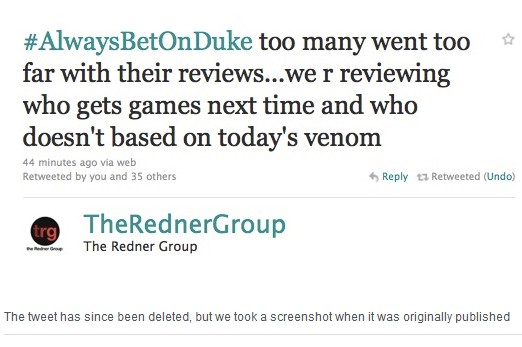
Globe and Mail tech writer Peter Nowak was on Jesse Brown’s CanadaLand podcast recently to talk about the corrupt, insular world of video game journalism. It’s one that bears more than a passing resemblance to the world of radio before the U.S. Senate began investigating DJ Alan Freed, in 1959.
But video game are kids stuff, you say? Let’s pause to remember the size of this business. As writer Stuart McGurk noted in GQ recently, Iron Man 3 was the highest grossing film of 2013, with $1.2-billion in revenue. That number was passed in just three days by the release of Grand Theft Auto Five, in September of last year.
“These are the journalists that keep an eye on the most lucrative entertainment medium in the world.” notes Brown.
Nowak likens today’s video game business to the Hollywood studio systems of the 1940’s, in which large studios created content and also owned the means of distribution. He says the mainstream media’s reluctance to cover video games as serious content meant the task was left to a collection of enthusiasts, who formed websites that were dependent on access to games from publishers. “The video game industry is one of those few industries that has almost total control over access to what they do,” explains Nowak.
Nowak says this nascent trade press is almost entirely dependent upon advertising dollars supplied by the same organizations they are reviewing. “If you are covering video games and your advertising support is coming from Nike or Coca-Cola you’re in a lot stronger position than if your advertising is coming from Activision or Electronic Arts,” he said.
Blacklisting in the video game industry, says Nowak, takes place in many forms. It can take the form of a publisher sending a game a week later than other publications, effectively rendering a review that is dependent on its timeliness obsolete. But there are other ways. The journalist says he was simply not sent a copy of “Wolfenstein: The New Order” because the publisher claimed it did not have enough copies, a curious excuse in the digital age, he points out. Searching for a reason, Nowak wonders aloud if a less than stellar review he filed on another game called “Dishonered”, also from publisher Bethesda Softworks, was the real culprit. “It seems rather coincidental that we’re not getting games from them”, he said.
Ben Kuchera, a writer with ars technica, says it’s tough to prove that the industry is exerting too much influence.
“Speaking generally, I’ve known people both on the giving and receiving end of blacklists, and it’s an ugly (but private) weapon used against—and sometimes by—the press. That’s why it’s so insidious: it’s nearly impossible to prove that interview opportunities are being held back or review copies aren’t being sent due to a prior, negative review.”
But in 2011, Kuchera was at the center of a mini-scandal that exposed the video-game industry’s ugly side. After multiple negative reviews of Duke Nukem Forever, The Redner Group, which represented 2K Games, lobbed a grenade at the media, threatening to stop sending 2K games to reviewers. The PR firm tweeted: “…too many went too far with their reviews. we r reviewing who gets games next time and who doesn’t based on today’s venom”.
2K Games later parted ways with Redner over the issue, stating that “2K Games does not endorse the comments made by Jim Redner and we can confirm that The Redner Group no longer represents our products. We have always maintained a mutually-respectful working relationship with the press and do not condone his actions in any way.”
Nowak’s recent experiences suggest that this kind of corruption continues today.
Click here for the full interview.
___
Comment
One thought on “Is video game journalism headed for its own Payola-style scandal?”
Leave a Reply
You must be logged in to post a comment.




 Share
Share Tweet
Tweet Share
Share




Wow this article received no comments at all interesting.
Nick I thinks it’s getting worst.
Numbers directly for Metacritic
NBA 12k15
Critics 87 Users 4.8
Borderlands the Pre-sequel
Critics 75 Users 6.1
Sid Meier’s Civilization: Beyond Earth
Critics 81 Users 5.6
Football Manager 2015
Critics 80 Users 5.5
Assassin’s Creed Unity
Critics 71 Users 2.4 <<< over 1000 ratings
Call of Duty: Advanced Warfare
Critics 78 Users 4.5
All of those are from just this year, all the games have a common theme.
Big Titles from Big Companies
Sequels to very successful well received and loved games at launch of the original title.
Something else I've noticed. I have taken part of 3 MMOs betas in the last two years. I continued to play all 3 games for about a year or more. All 3 games felt like they were still in beta at launch. All 3 games still had major issues over 6 months after launch.
This is like 1985 in the game industry all over again.